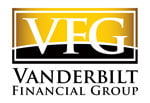The 2008 mortgage crisis marked a turning point in climate related disclosures. We interviewed Greg Rogers, founder of management consultancy Eratothenes, global disclosure database Envonet, and one of the pioneers of the movement to increase the level of climate-related disclosure.
The Task Force is in Effect!
The Financial Stability Board was prompted to create a task force to mitigate the risks that pose a threat to the stability of the world’s financial systems. The Task Force on Climate-Related Financial Disclosures (TCFD) was established to address the catastrophic impact of climate change that is piercing the fabric of businesses around the globe:
How can businesses position themselves to be resilient against climate change when there is so much uncertainty and so little is actually known about what the government and the climate are going to do?
Scientists are telling us that if global temperature rise more than 2 degrees from preindustrial levels then we will hit a tipping point that we can’t recover from. Now, wouldn’t you say that introduces a bit of uncertainty into the fray? The idea of resiliency, in this scenario, is to develop a business model that will deal with that uncertainty as best as possible.
Says Rogers, “The capital markets are not able to properly price environmental or climate related risk. They just don’t have enough information. That information is going to have to come through the companies that they invest in.”
The quest for more transparent disclosures is indeed gaining traction, targeting several core areas:
- Investee companies need to disclose more
- The financial sector needs to disclose more
- Banks, insurance companies, asset owners, and asset managers need to disclose more about the debt and equity that they hold
- The financial sector needs more disclosure from the non financial sector companies that they work with
The task force created to spearhead this movement does not have regulatory authority per se, but it advocates for disclosures in discrete areas for all companies to address such as governance, strategy, risk management, and performance metrics and targets. There are also supplemental disclosures for financial and energy companies.
Demystifying Investor Relations
Investor relations is a marketing function and their chief goal is to present the company as an investment opportunity. This is often done magnificently well.
Until now.
It takes the eye of a trained expert to spot the places where the marketing may fail to paint a true picture of the company’s environmental friendliness. For example, Rogers analyzed Exxon Mobil and found that the company failed to disclose its marginal production costs relative to its peers. Yet they are holding themselves out as one of the world’s best low-cost suppliers of oil and gas (Scott, 2018).
This is the point at which change can be made. It lies within the action of finding the truth within the cluttered and convoluted stories that businesses tend to make up. Greg Rogers and the TFCD are moving in the right direction. To support their progress, please join Greg’s Climate-Related Financial Disclosure group on LinkedIn!
Sources
Scott, Mike. (26 March, 2018). Grading ExxonMobil's Climate Risk Report - 'U' For Unsatisfactory. Forbes. Retrieved from https://www.forbes.com/sites/mikescott/2018/03/26/grading-exxonmobils-climate-risk-report-u-for-unsatisfactory/#3129ad22ee85.
